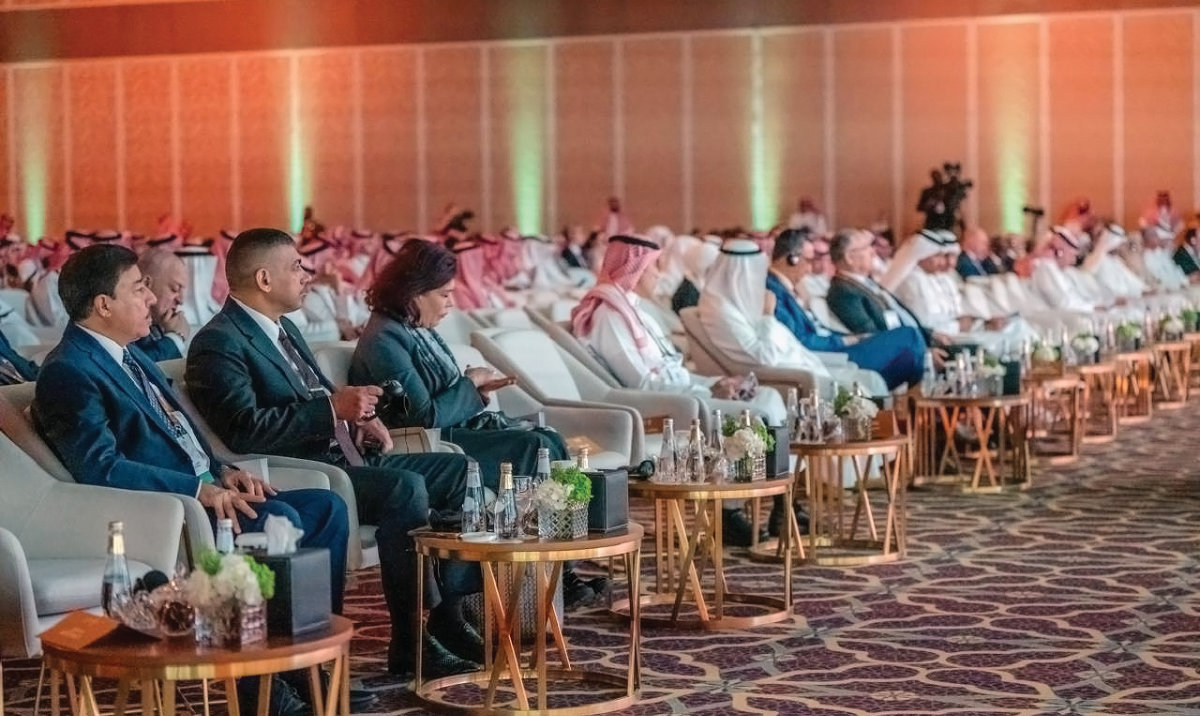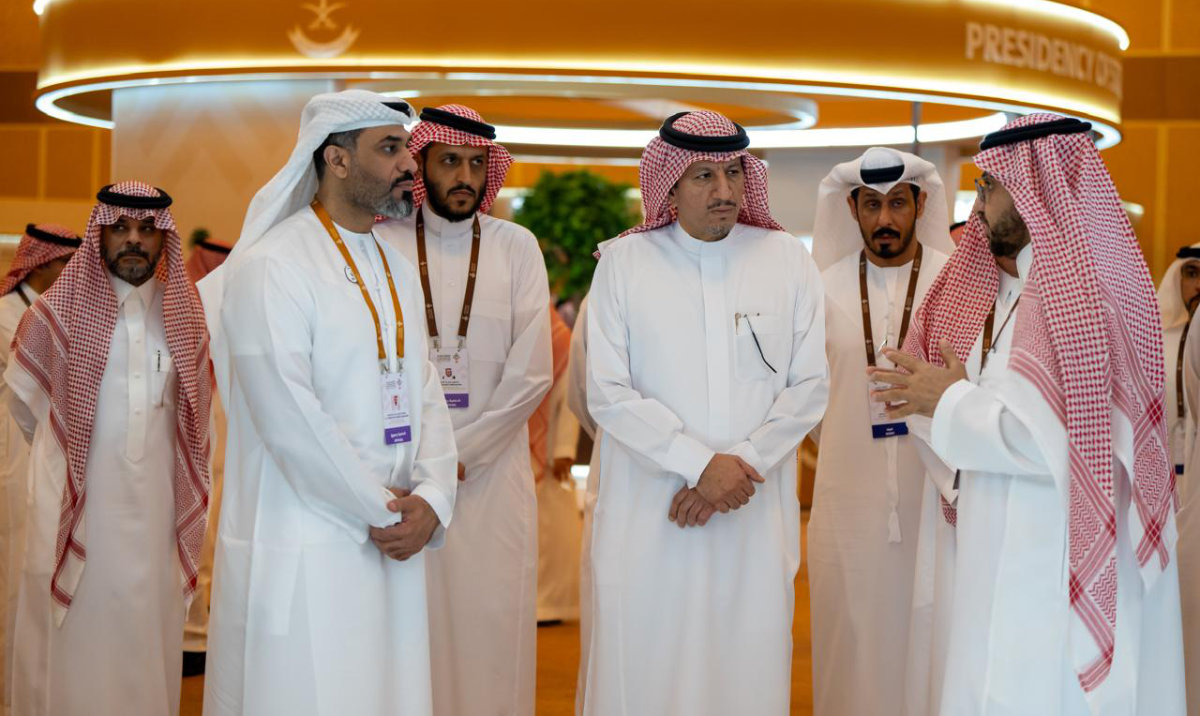JEDDAH: Saudis feel let down at a time when they believe the US and Saudi Arabia should be together facing threats to the stability and security of the Gulf region, Prince Turki Al-Faisal, Saudi Arabia’s former intelligence chief and former ambassador to both London and Washington D.C., told Arab News.
He identified the threats specifically as Iran’s influence in Yemen and its use of the Houthis as a tool “not only to destabilize Saudi Arabia, but also affect the security and stability of the international sea lanes” along the Red Sea, the Gulf and the Arabian Sea.
“The fact that President Biden delisted the Houthis from the terrorist list has emboldened them and made them even more aggressive in their attacks on Saudi Arabia, as well as on the UAE,” Prince Turki told Katie Jensen, the new host of Arab News’ “Frankly Speaking.” He was alluding to the Feb. 12, 2021, revocation by the new Democratic administration of the Iran-aligned militia’s designation as a Foreign Terrorist Organization.
“Frankly Speaking” features interviews with leading policymakers and business leaders, diving deep into the biggest news-making headlines across the Middle East and around the world. During his appearance on the video show, Prince Turki offered his views on US-Saudi relations, the war between Russia and Ukraine, and the ever-shifting dynamics of Middle Eastern geopolitics at a time of rising oil prices and diplomatic tensions.
“We have always considered our relationship with the US as being strategic,” he said on the question of whether many Saudis feel they have been betrayed by one of their closest allies.
“We’ve had our ups and downs over the years and perhaps, at this time, it’s one of the downs, particularly since the president of the US, in his election campaign, said that he will make Saudi Arabia a pariah. And, of course, he went on to practice what he preached: First of all, by stopping the joint operations that America had with the Kingdom in meeting the challenge of the Houthi-led rebellion in Yemen against the Yemeni people. And, second, among other similar actions, by not meeting with (Saudi Arabia’s crown prince) and publicly declaring that he would not meet with the crown prince, and, at one stage, withdrawing anti-aircraft missile batteries from the Kingdom when we were facing an increase in attacks by the Houthis using Iranian equipment like missiles and drones.”

Pointing out that Saudi Arabia “all the time … has been calling for a peaceful solution to the Yemen conflict,” Prince Turki said: “Unfortunately the Houthis have always either not responded to that call or simply ignored it or opposed it. And, as we see now, there is a supposed ceasefire established by the UN, but the Houthis continue to infringe on that ceasefire and to take advantage of the ceasefire to reposition their forces and replenish them.”
“So, basically this is how the situation has come to this stage,” he said, referring to the current state of US-Saudi relations. “I hope that we’ll get over it like we got over so many previous downturns in the relationship.”
On the face of it, Washington seems to be quite eager to keep its communication channels with Riyadh open with phone calls and visits by officials but, according to Prince Turki, “it’s not just one thing.”
He said: “It’s the general tone of the atmosphere and America, for example, has been declaring, or American officials have been declaring, that they are in support of Saudi Arabia and will help Saudi Arabia defend itself against outside aggression and so on. We are grateful for those statements, but we need to see more in terms of the relationship between the two leaderships.”
He shrugged off the claim that Saudi Arabia has not budged on the issue of the oil problems that the US is facing, countering it with the argument that Washington itself “is the reason for the state that it is in because of its energy policy.”
“President Biden made it a policy of the US government to cut all links to what is called the oil and gas industry. He curtailed oil production and gas production in the US (when) it had been, in the last few years, the biggest producer of these two energy sources,” Prince Turki said.
This curtailment of US energy production, he says, helped lift the price of oil, together with the OPEC+ agreement established after the COVID-19 difficulty, which “was an agreement to bring down production in order to stabilize the prices, for the benefit of everybody and stability of oil prices.”
Prince Turki was emphatic that Saudi Arabia does not want to be “an instrument or a reason for instability in oil prices,” indicating that actions such as the embargo of 1973 were a thing of the past.
“That is why the Kingdom and the other OPEC members and the OPEC+ members are sticking to the production quotas that they have assigned themselves. I have read that the recent decision by OPEC+ to incrementally increase oil production while the agreement is effective, is in response to the difficulties that people have in the energy sector. Another factor that adds to all this is the security issue, the high rates of insurance that have come about as a result of the war in Ukraine, plus the European and US curtailment of, and sanctions on, the Russian oil industry. All of these things have added to the increase in oil prices.”
In this connection, Prince Turki expressed strong displeasure with comments made by Hillary Clinton, the former US secretary of state, on NBC’s “Meet the Press” program in support of a “carrot-and-stick” approach to force Saudi Arabia to increase its share of oil production in order to reduce prices during what she called an “existential crisis.”
Reiterating that he could not speak for all Saudis, Prince Turki said: “We are not schoolchildren to be treated with a carrot and stick. We are a sovereign country, and when we are dealt with fairly and squarely, we respond likewise. It is unfortunate that such statements are made by politicians wherever they may be. I hope that the relationship of the Kingdom and the US will not hinge around or be built upon that principle.”
Likewise, Prince Turki brushed away the charge that Riyadh has chosen to side with Moscow in the Ukraine conflict, noting that “the Kingdom has publicly declared and voted to condemn the aggression against Ukraine that was passed by the UN General Assembly.”
Opinion
This section contains relevant reference points, placed in (Opinion field)
Pointing out that Saudi Arabia offered to mediate between Russia and Ukraine, he said: “As a mediator, it will have to maintain a link and the ability to talk to both sides. We’ve had good relations with both countries over the years. In general, as I mentioned, the Kingdom is against the aggression in Ukraine. But also, most recently, the Kingdom has contributed to the fund that was established by the UN to provide support for the Ukrainian refugees in Europe. So that is where the Kingdom stands.”
He described the Saudi mediation bid as “an offer of a friend to friends — both Ukraine and Russia — (with) whom we have had excellent relations in the recent past.”
Moving on to what he perceives as international hypocrisy exposed by the Russia-Ukraine conflict, Prince Turki said this has been proven “by the way refugees from Ukraine have been described in civilizational terms as being one with the West and one with Europe and so on, as if other refugees from the Middle East or from other parts of the world are not equally human as Ukrainians. That’s one discrepancy in the way that Western media particularly has depicted the issue of the refugees.
“Another one of course — part of the hypocrisy — is the UN and the way that sanctions have been placed on Russia for invading Ukraine but no sanctions for example had been placed on Israel when it invaded Arab countries a few years back. Those are the double standards and the injustices that I think have been taking place over the years.”
On the question of whether Israel should therefore be treated at par with Russia when it comes to sanctions, Prince Turki did not pull punches. “Absolutely. I don’t see what the difference is there between the two,” he told “Frankly Speaking.”
He added: “Aggression is aggression, whether it is committed by Russia or by Israel.”
Furthermore, Prince Turki cast doubt on the theory that normalizing relations with Israel — the route taken by a number of Arab countries, including Egypt, Jordan, the UAE and Bahrain — could be a more productive policy. “I have seen no evidence of that,” he said. “The Palestinian people are still occupied, they are still being imprisoned by the Israeli government. Attacks and assassinations of Palestinian individuals take place almost on a daily basis. The stealing of Palestinian land by Israel continues despite the assurances that Israel gave to the signatories of the peace (accord) between the UAE and Israel. So, there is no sign whatsoever that appeasing Israel is going to change their attitude.”
On issues closer to home, Prince Turki views the recent visit of Turkish President Recep Tayyip Erdogan, for one, as a positive development. “I think the leadership in Turkey has come to realize that their previous animus toward the Kingdom was not serving anybody’s well-being and purpose, especially the Turkish people,” he said, referring to the disputes and disagreements of recent years.
“Historic links bring us together with Turkey not just in terms of geography, but also in terms of human relations and family ties between the two countries. My own grandmother was of Turkish extraction, Circassian.”
Moving forward, the relationship “should be one of the best in terms of benefit for both countries,” Prince Turki said, citing such areas as trade, construction, development projects, and investments by Saudi Arabia and Turkey.

“All of those, I hope, will be restored now that the relationship is hopefully back to normal,” he added.
He expressed similarly cautious optimism about the likelihood of a lasting peace deal in Yemen on the basis of the recently concluded Riyadh agreement and the Ramadan ceasefire.
“I’ve always maintained that ceasefire agreements, as attempted by the UN, particularly concerning Yemen, have lacked one crucial aspect which has not led to their success, and that is a mechanism to enforce the ceasefires,” Prince Turki said.
“We saw, after the Kuwait meeting back in 2016, there was a ceasefire, but it led nowhere. And then there was the Swedish-sponsored ceasefire attempt back in 2018, equally without much success. Saudi Arabia’s own efforts at unilateral ceasefires of recent years have led nowhere because there was no mechanism to implement the ceasefire.”
Nevertheless, Prince Turki expressed hope that with the renewed international impetus to bring the fighting in Yemen to an end, some sort of instrument can be implemented so that any party that does not abide by the ceasefire terms is publicly shamed by the international community.
“That has not happened yet. I have not yet seen the UN saying that the Houthis are not abiding by the ceasefire,” he said, adding: “But I hope that they will have the courage and the moral courage to stand up and say who is at fault here.”



























